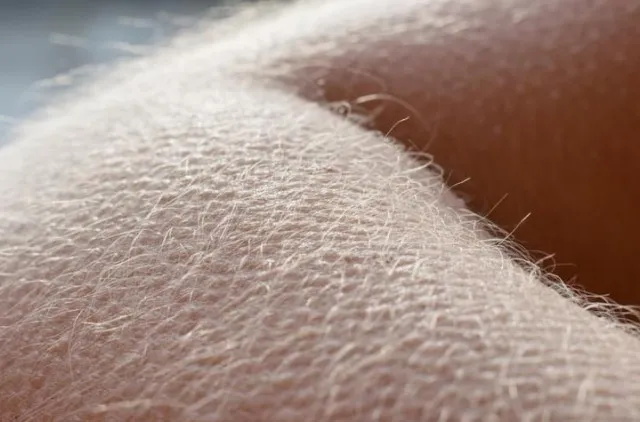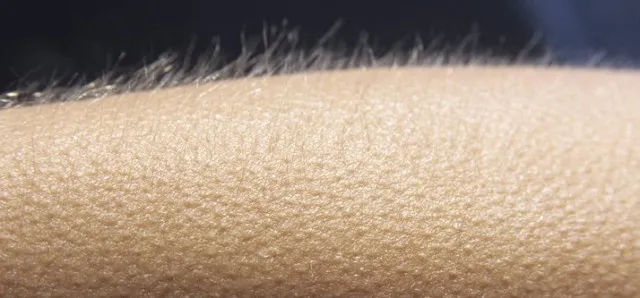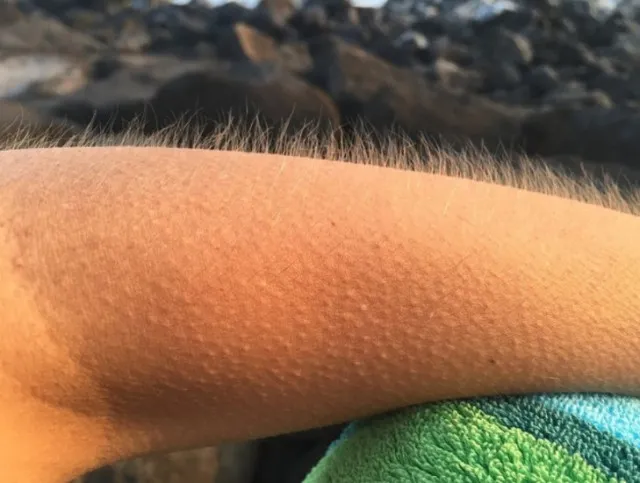Ever wonder why you get goosebumps during strong emotions? It’s a fascinating response tied to your body’s reaction.
Goosebumps are a common and curious reaction that many people experience.
You may have noticed them when you’re cold or feeling strong emotions like fear, excitement, or surprise.
But what exactly causes these little bumps on your skin?

What are goosebumps?
Goosebumps, also known scientifically as piloerection, happen when the tiny muscles at the base of hair follicles contract.
This contraction causes the hair to stand up, resulting in the bumps that we see on our skin.
When these muscles contract, they pull the hair follicle, creating a raised area of skin.
This response can occur in various situations, particularly in reaction to cold and emotional stimuli.

The body reacts to emotions in various ways.
The occurrence of goosebumps is closely linked to our body’s fight-or-flight response.
This is an automatic reaction that prepares us to face danger.
When we feel intense emotions, such as fear or excitement, our brain sends signals to the body to release adrenaline.
This hormone triggers various physical changes, including the contraction of the muscles attached to hair follicles.
For example, when you watch a scary movie or hear a sudden loud noise, your body may react by producing goosebumps.

This response is a leftover from our ancestors.
In the past, raised hair could help make a person appear larger to potential threats, providing a slight advantage in dangerous situations.
Goosebumps can also happen when you are cold.
When temperatures drop, your body tries to conserve heat.
The contraction of the muscles at the hair follicles causes the hairs to stand up, which can create a layer of air trapped close to the skin.
This layer of air can provide some insulation, helping to keep you warm.
Although this response may not be as effective for modern humans with less body hair, it is still a reflex that occurs naturally.
Other triggers can also cause goosebumps to occur.
Emotional experiences
Strong feelings can lead to this phenomenon. This includes moments of joy, sadness, awe, or inspiration.
For instance, you might feel goosebumps when listening to a powerful song or watching a moving scene in a film.

Physical reactions
Sudden changes in temperature or unexpected sensations, such as a chill running down your spine, can also cause goosebumps.
Memories and nostalgia
Sometimes, even recalling a memory that invokes strong feelings can trigger goosebumps.
This connection between memory and emotion highlights how our past experiences shape our responses.
Not everyone experiences this phenomenon in the same way.
Some people are more sensitive to emotional stimuli and may notice goosebumps more easily than others.
Genetics can play a role in how our bodies respond to emotions and temperature changes.
Additionally, individuals who are more emotionally expressive might find they get goosebumps more often when experiencing intense feelings.

Goosebumps are not only a physical reaction; they also hold cultural significance in many societies.
People often associate goosebumps with moments of deep emotional connection, such as during a moving performance or a heartfelt story.
This shared experience can create a sense of bonding among individuals who feel the same way.